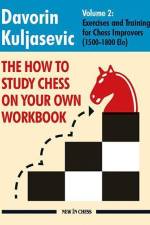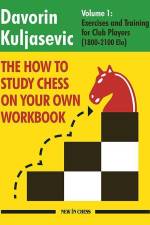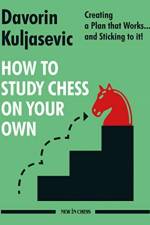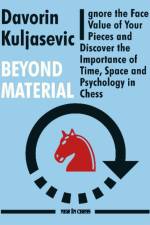- Ignore the Face Value of Your Pieces and Discover the Importance of Time, Space and Psychology in Chess
av Davorin Kuljasevic
297
Giving up material is one of the most difficult decisions a chess player has to take. But the reality is that winning a game very often requires you to make that choice. The nagging question is always: what about my compensation? The old school used to relate compensation to ';correctness'. A sacrifice was correct if the material was swiftly returned, if possible with interest. Generations of chess players spent lots of time counting, quantifying the static value of their pieces almost by reflex.In this book, Grandmaster Davorin Kuljasevic teaches you how to look beyond the material balance when you evaluate positions. With many instructive fragments he shows how the actual value of your pieces fluctuates during the game, depending on many non-material factors. Some of those factors are space-related, such as mobility, harmony, outposts, weaknesses, structures, squares, files and diagonals. Other factors are related to time, and to the way the moves unfold: tempo, initiative, a threat, an attack.Modern club players need to be able to suppress their need for immediate gratification. In order to gain the upper hand you often have to live with uncertain compensation. With the help of many fascinating examples, Kuljasevic teaches you the essential skill of taking calculated risks. After studying Beyond Material, winning games by sacrificing material will become second nature to you.





